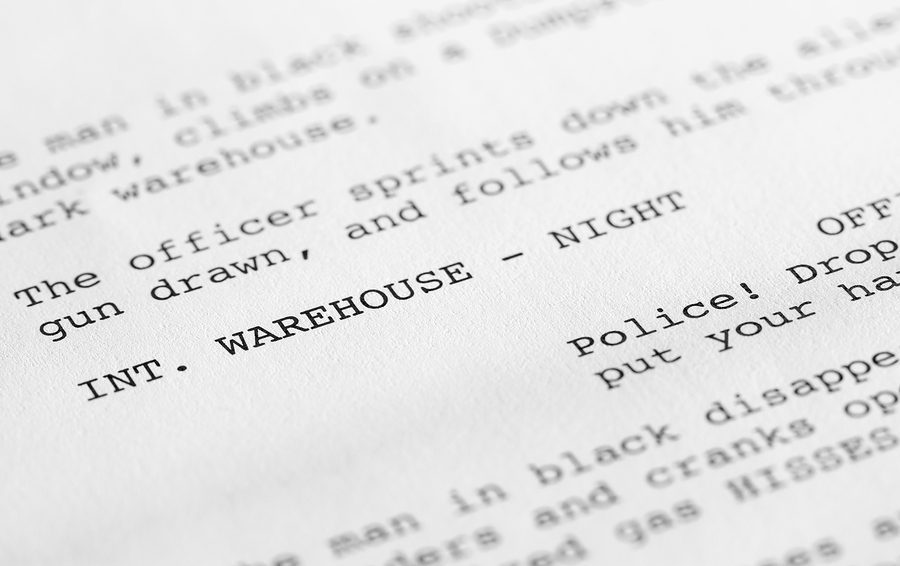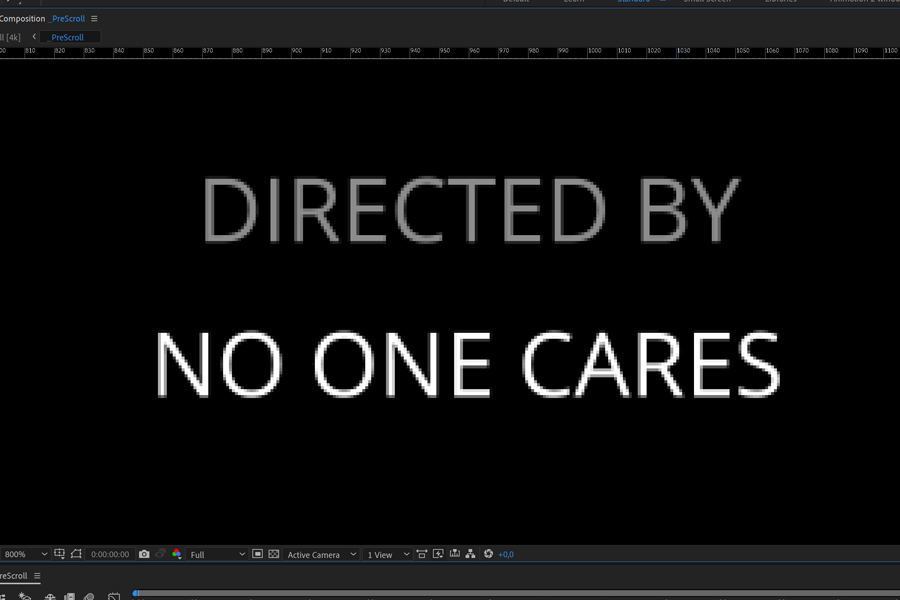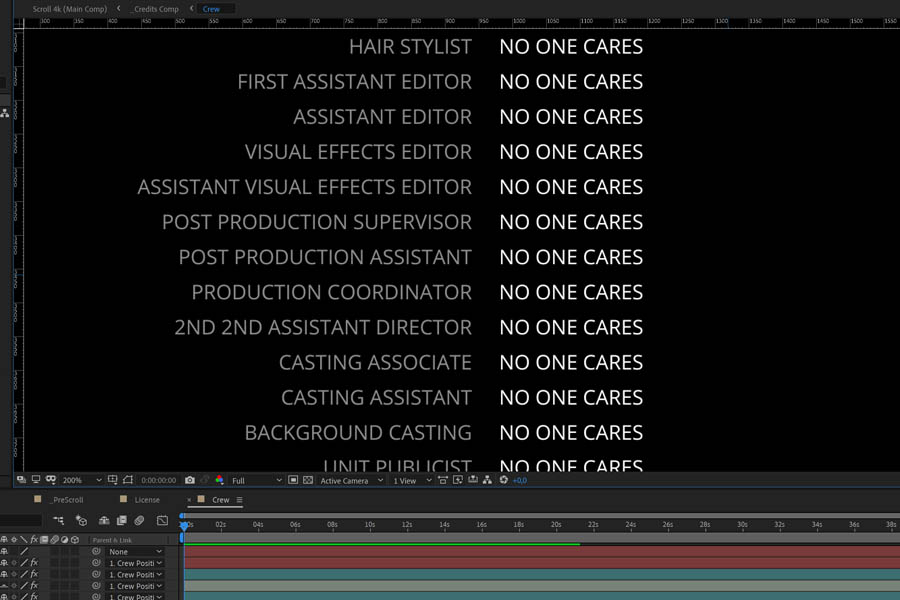DISCLOSURE: AS AN AMAZON ASSOCIATE I EARN FROM QUALIFYING PURCHASES. READ THE FULL DISCLOSURE FOR MORE INFO. ALL AFFILIATE LINKS ARE MARKED #ad
Featured Artwork by Giorgos Tsitras
This guest post was written by Andrew Straeger, the Director at Berlin Sci-Fi Filmfest.
Straeger has over 30 years of experience in the film industry as a writer, filmmaker, and producer and has participated in many workshops and panel discussions.
Straeger has recently published the book An Independent Filmmakers Guide To Preparing And Submitting To Film Festivals (link to the Kindle and paperback version on Amazon).
Also, you’ll find a link to his free e-book on the subject further down in this article.
For all filmmakers, the ultimate celebration of their work isn’t just completing the film. It is the moment it reaches the screen and its deserving audience.
Film festivals play a significant role in helping achieve that.
Festival rounds aren’t just about networking or having the chance to have one’s film screened. They are the best platform to gain acclaim and recognition amongst their peers.
Film Festival also serves up chances for future projects, distribution, and market visibility. It is not an easy process, but making a film is a labor of love, so preparing will justify your efforts.
So, I have put together five essential tips based on their remarks that independent filmmakers should know them from the beginning.
1. Review and rewrite your script many times.

I am sure many filmmakers write a script and think it is a genius. It might be that you have a fantastic foundation for your film.
My advice is to get it read by several different people. Have a few friends around and have a script reading. Review, rewrite, and make it better.
This requires you to take criticism from others and be critical of yourself.
Make your script as strong, interesting, and filmic as possible; meaning show us, don’t tell us.
A well-honed script is the bedrock of your film. Remember, you can’t make a silk purse out of a sow’s ear!
2. Opening Credits Are Nothing More Than Ego-Tripping, And No One Cares.

The biggest turn-off and mistake independent filmmakers make is long opening credits.
Most of the time you don’t have a star, so don’t write it.
You have the credits at the end, you don’t need them at the beginning.
Get on with the story. Hit your audience with something that makes them think, Hmm! I’m in.
From a jury member’s point of view, interest can be lost very quickly with rambling opening credits.
Get us interested and get on with it. Credits at the beginning are nothing more than ego-tripping.
3. Make Your Closing Credits Short Because No one Cares.

Not content with listing everyone at the beginning, filmmakers then do three (3) minutes of credits at the end.
I know this sounds awful, but nobody cares.
The audience might have ten shorts to watch. In a 90-minute session, if each short film has 3 minutes of credits, it means they sit through 30 minutes of nothing interesting.
So make your end credits short!
Remember that only the cast and crew have an interest in them.
Check out this guide to free end credits makers online.
4. Hook Your Audience and Pick Up the Pace.

Give your audience something to connect to early on. Find a hook to get the film started.
Festival jury members will have to watch hundreds of hours of films. They want to enjoy your film, and giving your film pace will help. You don’t have to cut everything short, but you have to find the beat.
You may also have some cool and pretty shots. But if they don’t progress the story, it tells the story you need to cut them out, however good they may be.
I can promise you that I have read this sentence a thousand times. It would have been much better if they cut a 1/3 out of the film.
Pick up the pace! Get people to watch the final cut and ask them: Was it too slow and where? You have to get on with the story.
5. If Your Film Has Bad Sound, There Is No Point In Submitting It.

Anything with bad sounds is automatically rejected.
If the sound isn’t good enough, there is no point in submitting it.
ADR can be costly, but you have no choice if that is the only way of saving your film. You cannot put your head in the sand and hope.
If you don’t know what ADR is, check out this guide written by audio post-production specialist Greg Conway.
So far this year alone, we have had around 20 films where the sound was so bad that they could not be accepted.
It is the one key point you must learn. A bad picture won’t get your film rejected, but bad sound will.
So check that you have a good sound recorder and mixer.
Conclusion

Berlin Sci-fi Filmfest submission season is coming to an end.
Now we have the difficult task of deciding which films are in and which are out. Rejecting anyone’s film is difficult.
But there is only so much time available to fill, and you must select the best films for the audience.
I have recently looked through all the judge’s comments. And it’s interesting to read how often the same criticisms and points are made.
Submitting your film to a film festival starts once the script’s first draft is complete. And from there, you need time to develop it.
Pre-production is a crucial time for preparation and planning. Get it wrong, and you make a rod for your back.
So much work must be done before you actually can seek an audience for the film.
But, if you don’t prepare yourself from day one and work hard at each stage, the likelihood is that your film will fail.
There is a great deal of competition and getting into festivals is not easy. The process is a long and arduous one, not to mention costly.
And you cannot cut corners. Especially with a limited budget, you have one asset: time. Time to plot, plan, and prepare.
With over thirty years in the business, I have made more films than I care to name. This includes making the above mistakes. I could have saved a lot of money had I known the above.
Becoming a festival director has taught me a great deal about my past mistakes. I have wasted more money than I could ever imagine and made many mistakes.
The pointers above will improve your chances of success. You can also download your free copy of ‘Creating Success With Your Submissions’:
This will give you a good base for getting the best out of your film.
If you find this useful and want to go into further depth and detail, look at my book. ‘An Independent Filmmakers Guide To Preparing & Submitting To Film Festivals’ is available through Amazon.

